The following is a list of most of the invited concurrent presenters for the 30th International Conference on Critical Thinking. This year we are planning a full day of concurrent sessions with more than 30 sessions from which to choose. Choose from among these and other concurrent sessions once you arrive at the conference. A concurrent session program will be in your conference packet.
Critical Thinking in the Oxford Tutorial – On the Need for A More Explicit and Systematic Approach

This session summarizes a research study focusing on the extent to which the Oxford tutorial fosters critical thinking in students. The results of this study reveal that participating Oxford tutors were primarily concerned with fostering students’ abilities to clarify central questions, define key terms, and question important assumptions (principally within the writing of essays). Participating tutors were less focused on fostering other essential critical thinking skills and dispositions including: 1) intellectual analysis and the internalization of new ideas, 2) intellectual evaluation, and 3) intellectual traits of mind. In addition to discussing this research in light of the relevant scientific literature, this session will focus on some important implications of the study for teaching and learning.
{"id":3181,"title":"Critical Thinking in the Oxford Tutorial – On the Need for A More Explicit and Systematic Approach","author":"Rush Cosgrove, University of Cambridge Fellow, Foundation for Critical Thinking","content":"<p><img id=\"__mce\" style=\"float: right;\" src=\"https://www.criticalthinking.org/image/pimage/Rush_Cosgrove200911.jpg\" alt=\"\" /></p>\r\n<div>&nbsp;</div>\r\n<div>This session summarizes a research study focusing on the extent to which the Oxford tutorial fosters critical thinking in students. The results of this study reveal that participating Oxford tutors were primarily concerned with fostering students&rsquo; abilities to clarify central questions, define key terms, and question important assumptions (principally within the writing of essays). Participating tutors were less focused on fostering other essential critical thinking skills and dispositions including: 1) intellectual analysis and the internalization of new ideas, 2) intellectual evaluation, and 3) intellectual traits of mind. In addition to discussing this research in light of the relevant scientific literature, this session will focus on some important implications of the study for teaching and learning.</div>\r\n<p><br style=\"clear: both;\" /></p>","public_access":"1","public_downloads":"1","sku":"","files":{},"images":{}}
Evaluating a London Professional Development Program Which Purports to Foster Critical Thinking Across the Curriculum: An Urban, Culturally Diverse Case Study
This session focuses on a research project exploring Lampton School, an ethnically and socially diverse school in London, which has been integrating critical thinking into instruction during the past three years. Lampton has recently been named one of only 12 schools in the country to be “outstanding under challenging circumstances”. Lampton teachers are now spreading CT pedagogy to other schools through the “Aim Higher” and the London Leadership Strategy’s “Excellence and Equity” endeavors. Teachers involved in the CT project at Lampton credit the infusion of CT into the curriculum as significantly contributing to these successes. The session will explore the ways in which Lampton teachers are fostering critical thinking, including examples from classroom practice. The session will also illuminate Lampton both teachers’ and students’ conceptions of critical thinking.
{"id":"3182","title":"Evaluating a London Professional Development Program Which Purports to Foster Critical Thinking Across the Curriculum: An Urban, Culturally Diverse Case Study","author":"Rush Cosgrove, University of Cambridge Fellow, Foundation for Critical Thinking","content":"<div> </div>\r\n<div>This session focuses on a research project exploring Lampton School, an ethnically and socially diverse school in London, which has been integrating critical thinking into instruction during the past three years. Lampton has recently been named one of only 12 schools in the country to be “outstanding under challenging circumstances”. Lampton teachers are now spreading CT pedagogy to other schools through the “Aim Higher” and the London Leadership Strategy’s “Excellence and Equity” endeavors. Teachers involved in the CT project at Lampton credit the infusion of CT into the curriculum as significantly contributing to these successes. The session will explore the ways in which Lampton teachers are fostering critical thinking, including examples from classroom practice. The session will also illuminate Lampton both teachers’ and students’ conceptions of critical thinking.</div>\r\n<p><br style=\"clear: both;\" /></p>","public_access":"1","public_downloads":"1","sku":"","files":{},"images":{}}
Developing and sustaining a critical thinking initiative across your institution; (Part I and Part II: 2 hours in length)

Launching a critical thinking program across your institution, and fostering engagement with your teachers, staff or students, can present a number of challenges for administrators. This session will guide participants in engaging with an implementation model and growth strategy developed by the University of Louisville (UofL). Launched in 2007, the UofL Ideas to Action initiative has created lasting critical thinking programs and curricular structures across the disciplines and in the student affairs and student service arenas. The session facilitator will share “lessons learned” in fostering organizational change that places critical thinking as a common value and curricular framework; participants will consider how they might transfer these concepts to their own institutions. An interactive worksheet will guide attendees in applying the concepts to their work; bibliography and assessment tools to measure change readiness are included.
{"id":"3183","title":"Developing and sustaining a critical thinking initiative across your institution; (Part I and Part II: 2 hours in length)","author":"Presenter: Patricia Payette, Ph.D., University of Louisville","content":"<p><img class=\"image-inline\" style=\"margin: 5px; width: 139px; float: left; height: 200px;\" src=\"https://louisville.edu/ideastoaction/images/staff/Patty.png/image_mini\" alt=\"Patty Payette\" /><br /> Launching a critical thinking program across your institution, and fostering engagement with your teachers, staff or students, can present a number of challenges for administrators. This session will guide participants in engaging with an implementation model and growth strategy developed by the University of Louisville (UofL). Launched in 2007, the UofL Ideas to Action initiative has created lasting critical thinking programs and curricular structures across the disciplines and in the student affairs and student service arenas. The session facilitator will share “lessons learned” in fostering organizational change that places critical thinking as a common value and curricular framework; participants will consider how they might transfer these concepts to their own institutions. An interactive worksheet will guide attendees in applying the concepts to their work; bibliography and assessment tools to measure change readiness are included.</p>\r\n<p><br style=\"clear: both;\" /></p>","public_access":"1","public_downloads":"1","sku":"","files":{},"images":{}}
Abstracts from University of Louisville
In 2007, the University of Louisville launched its quality enhancement plan (QEP) titled Ideas to Acton: Using Critical Thinking to Foster Student Learning Community Engagement. This ten-year initiative is centered upon the development and assessment of students’ critical thinking skills and the promotion of community engagement across the undergraduate curriculum. The Ideas to Action (i2a) program is part of UofL’s commitment to ongoing improvement as part of the regional reaccreditation process. The Paul-Elder critical thinking model provides the framework for the teaching and learning innovations faculty and staff are creating as part of i2a at UofL. These innovations include the development of new or revised learning tools, assignments, assessments, programs and teaching and learning strategies. The i2a staff and campus partners are promoting critical thinking infusion and “Paul-Elder integration” by facilitating new learning communities, developing workshops and small group sessions, offering individual consultations, creating resource materials and fostering cross-disciplinary conversations about critical thinking. To learn more about the i2a critical thinking work at University of Louisville, go to: https://louisville.edu/ideastoaction
Presenters from the University of Louisville:
{"id":3184,"title":"","author":"","content":"<hr />\r\n<p><br /> <span style=\"color: #000080;\"><span><strong>A</strong></span></span><span style=\"color: #000080;\"><span><strong>bstracts from University of Louisville</strong></span></span><a href=\"https://louisville.edu/ideastoaction\"><br /> </a></p>\r\n<p>In 2007, the University of Louisville launched its quality enhancement plan (QEP) titled Ideas to Acton:<span>&nbsp;&nbsp; Using Critical Thinking to Foster Student Learning Community Engagement.&nbsp;&nbsp; This ten-year initiative is centered upon the development and assessment of students&rsquo; critical thinking skills and the promotion of community engagement across the undergraduate curriculum.&nbsp;The Ideas to Action (i2a) program is part of UofL&rsquo;s commitment to ongoing improvement as part of the regional reaccreditation process.&nbsp;&nbsp; The Paul-Elder critical thinking model provides the framework for the teaching and learning innovations faculty and staff are creating as part of i2a at UofL.&nbsp;These innovations include the development of new or revised learning tools, assignments, assessments, programs and teaching and learning strategies.&nbsp;&nbsp; The i2a staff and campus partners are promoting critical thinking infusion and &ldquo;Paul-Elder integration&rdquo; by facilitating new learning communities, developing workshops and small group sessions, offering individual consultations, creating resource materials and fostering cross-disciplinary conversations about critical thinking.&nbsp;To learn more about the i2a critical thinking work at University of Louisville, go to: <a href=\"https://louisville.edu/ideastoaction\">https://louisville.edu/ideastoaction</a> </span></p>\r\n<p><br /> <span style=\"color: #000080;\"><span><strong>Presenters from the University of Louisville:<br /> </strong></span></span></p>\r\n<p><br style=\"clear: both;\" /></p>","public_access":"1","public_downloads":"1","sku":"","files":{},"images":{}}
Asking essential questions as design factors in the development of culminating senior experiences

Drawing on the Thinker’s Guide The Art of Asking Essential Questions, this session is organized to generate successful methods for designing higher education curricula, specifically senior-level experiences that blend critical thinking concepts with focused reflection, integration, and application. Capstone courses offered at the culmination of undergraduate education are common structures for these activities. Participants will work closely through the three areas of questioning outlined in this guide: analytic questions, evaluative questions, and questions within academic disciplines, together with best practices on integrative and experiential learning to develop course components for genuine and authentic experiences. Exemplars and best practices from the literature and University of Louisville courses will be shared with participants to help generate creative and innovative approaches to integrating critical thinking.
{"id":3185,"title":" Asking essential questions as design factors in the development of culminating senior experiences ","author":"Presenter: Nisha Gupta, Ph.D., University of Louisville","content":"<p><img class=\"image-inline\" style=\"margin: 5px; width: 139px; float: left; height: 200px;\" src=\"https://louisville.edu/ideastoaction/images/staff/Nisha-Gupta.png/image_mini\" alt=\"Nisha Gupta\" /><br /> Drawing on the Thinker&rsquo;s Guide <em>The Art of Asking Essential Questions,</em> this session is organized to generate successful methods for designing higher education curricula, specifically senior-level experiences that blend critical thinking concepts with focused reflection, integration, and application.&nbsp; Capstone courses offered at the culmination of undergraduate education are common structures for these activities.&nbsp; Participants will work closely through the three areas of questioning outlined in this guide: analytic questions, evaluative questions, and questions within academic disciplines, together with best practices on integrative and experiential learning to develop course components for genuine and authentic experiences.&nbsp; Exemplars and best practices from the literature and University of Louisville courses will be shared with participants to help generate creative and innovative approaches to integrating critical thinking.</p>\r\n<p><br style=\"clear: both;\" /></p>","public_access":"1","public_downloads":"1","sku":"","files":{},"images":{}}
Strategies for teaching critical thinking in a large – enrollment freshman-level introductory and psychology course.

The purpose of this session is to share strategies and student outcomes for incorporating the Paul-Elder critical thinking framework into a large enrollment introductory psychology course.
This course was revised to explicitly focus on critical thinking skill building. This session will include information about, and sharing of, a resdesigned core assignment that focuses on the “logic of an article.” Other strategies build on the Paul-Elder framework of critical thinking and include the use of iclickers, YouTube and random number generators. This session will be interactive and participants will be given the opportunity to assess the effectiveness of these strategies for their own classroom use.
{"id":"3186","title":"Strategies for teaching critical thinking in a large – enrollment freshman-level introductory and psychology course.","author":"Presenter: Edna Ross, Ph.D.","content":"<p><img class=\"image-inline\" style=\"margin: 5px; width: 139px; float: left; height: 200px;\" src=\"https://louisville.edu/ideastoaction/images/staff/Edna.png/image_mini\" alt=\"Edna Ross\" /><br /> The purpose of this session is to share strategies and student outcomes for incorporating the Paul-Elder critical thinking framework into a large enrollment introductory psychology course.</p>\r\n<p>This course was revised to explicitly focus on critical thinking skill building. This session will include information about, and sharing of, a resdesigned core assignment that focuses on the “logic of an article.” Other strategies build on the Paul-Elder framework of critical thinking and include the use of iclickers, YouTube and random number generators. This session will be interactive and participants will be given the opportunity to assess the effectiveness of these strategies for their own classroom use.</p>\r\n<p><br /><br style=\"clear: both;\" /></p>","public_access":"1","public_downloads":"1","sku":"","files":{},"images":{}}
Making the case for critical thinking with your students and colleagues.
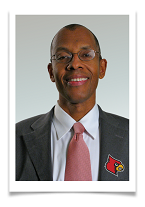
This session will focus on strategies for communicating the practical benefits of critical thinking within academic, personal and professional domains. Participants will explore the power of critical thinking and the Paul/Elder framework for personal decision-making and practical problem-solving, as well as applications of the framework to catalyze “breakthrough” creativity and design innovative solutions. Participants will also envision a fair-minded critical society, review the intellectual traits necessary to create such a society, and practice a conversational model that communicates the relevance of critical thinking within the context of the greater good.
{"id":3187,"title":"Making the case for critical thinking with your students and colleagues.","author":"Presenter: Harry Pickens, University of Louisville","content":"<p><img id=\"__mce\" style=\"float: right;\" src=\"https://www.criticalthinking.org/image/pimage/harry_pickens.png\" alt=\"\" /></p>\r\n<p><br /> This session will focus on strategies for communicating the practical benefits of critical thinking within academic, personal and professional domains. Participants will explore the power of critical thinking and the Paul/Elder framework for personal decision-making and practical problem-solving, as well as applications of the framework to catalyze &ldquo;breakthrough&rdquo; creativity and design innovative solutions. Participants will also envision a fair-minded critical society, review the intellectual traits necessary to create such a society, and practice a conversational model that communicates the relevance of critical thinking within the context of the greater good.</p>\r\n<p><br style=\"clear: both;\" /></p>","public_access":"1","public_downloads":"1","sku":"","files":{},"images":{}}
This presenter will share strategies and learning outcomes for assessing critical thinking among students receiving tutoring in several different undergraduate courses at the University of Louisville. This session will include details regarding a rubric created based on the Paul-Elder framework and how tutors are working to develop critical thinking skills in their students. Results of data gathered in Fall 09 will be shared in addition to tutors giving their feedback on their role as critical thinking advocates. The session will be interactive and discussion is encouraged.
{"id":3188,"title":"Thinking About Our Thinking: How the REACH Learning Resource Center is working to promote and measure critical thinking","author":"Julie Hohmann, M.Ed., REACH Learning Resource Center, University of Louisville","content":"<div>&nbsp;<img style=\"margin-top: -25px; width: 150px; float: right; height: 200px; margin-left: 10px;\" src=\"https://www.criticalthinking.org/image/pimage/JHohmann.jpg\" alt=\"\" /></div>\r\n<div>This presenter will share strategies and learning outcomes for assessing critical thinking among students receiving tutoring in several different undergraduate courses at the University of Louisville. This session will include details regarding a rubric created based on the Paul-Elder framework and how tutors are working to develop critical thinking skills in their students.&nbsp; Results of data gathered in Fall 09 will be shared in addition to tutors giving their feedback on their role as critical thinking advocates.&nbsp; The session will be interactive and discussion is encouraged.</div>\r\n<p><br style=\"clear: both;\" /></p>","public_access":"1","public_downloads":"1","sku":"","files":{},"images":{}}
Engaging in Socratic Questioning to Support Student Success

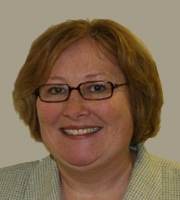 The Paul-Elder critical thinking framework provides academic advisors with tools for understanding how students make meaning of their academic experiences. Socratic questioning provides a vehicle for advisors to engage students in a reflective dialogue that probes student perceptions and uncovers factors that may help or inhibit student success. Professional academic advisors at the University of Louisville are involved in a pilot project that incorporates the concepts of the Paul-Elder framework, Socratic questioning, intrusive advising, basic counseling techniques, and the NACADA teaching/learning paradigm of academic advising into an innovative approach to advising students in academic peril. The purpose of this session is to share how the University of Louisville academic advisors are planning an intervention program to foster student engagement and success through the art of Socratic questioning.
The Paul-Elder critical thinking framework provides academic advisors with tools for understanding how students make meaning of their academic experiences. Socratic questioning provides a vehicle for advisors to engage students in a reflective dialogue that probes student perceptions and uncovers factors that may help or inhibit student success. Professional academic advisors at the University of Louisville are involved in a pilot project that incorporates the concepts of the Paul-Elder framework, Socratic questioning, intrusive advising, basic counseling techniques, and the NACADA teaching/learning paradigm of academic advising into an innovative approach to advising students in academic peril. The purpose of this session is to share how the University of Louisville academic advisors are planning an intervention program to foster student engagement and success through the art of Socratic questioning.
_________________________________________________________________________________________________________
{"id":3189,"title":"Engaging in Socratic Questioning to Support Student Success","author":"Presenters: Nora Scobie and Janet Spence","content":"<p><br /> <img class=\"image-inline\" style=\"margin-top: 5px; width: 103px; float: right; height: 165px; margin-left: 5px;\" src=\"https://louisville.edu/advising/ugap/NoraAllenScobie.JPG/image_preview\" alt=\"Nora's Photo\" /><img style=\"margin-top: 5px; width: 148px; float: right; height: 164px; margin-left: 5px;\" src=\"https://www.criticalthinking.org/image/pimage/Janet M Spence.jpg\" alt=\"Janet M Spence\" />The Paul-Elder critical thinking framework provides academic advisors with tools for understanding how students make meaning of their academic experiences. Socratic questioning provides a vehicle for advisors to engage students in a reflective dialogue that probes student perceptions and uncovers factors that may help or inhibit student success. Professional academic advisors at the University of Louisville are involved in a pilot project that incorporates the concepts of the Paul-Elder framework, Socratic questioning, intrusive advising, basic counseling techniques, and the NACADA teaching/learning paradigm of academic advising into an innovative approach to advising students in academic peril. The purpose of this session is to share how the University of Louisville academic advisors are planning an intervention program to foster student engagement and success through the art of Socratic questioning.</p>\r\n<p>_________________________________________________________________________________________________________</p>\r\n<p><br style=\"clear: both;\" /></p>","public_access":"1","public_downloads":"1","sku":"","files":{},"images":{}}
Developing the Questioning Mind through Team-Based Learning
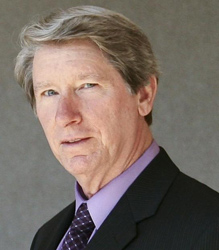
Team-based learning (TBL) is a pedagogical method that compels students to ask the right questions to learn content. Students are assigned individual study before class to master fundamental concepts. In class, student learning of concepts is assessed through individual and team readiness assurance tests. This is followed by a team exercise that requires students to ask the right questions to solve a relevant problem. This session will illustrate how this works by engaging the participants in a TBL exercise.
{"id":3190,"title":"Developing the Questioning Mind through Team-Based Learning","author":"David Hawkins, PharmD, Professor and Dean, California Northstate College of Pharmacy","content":"<p><img style=\"margin-top: 5px; width: 131px; float: right; height: 150px; margin-left: 5px;\" src=\"https://www.criticalthinking.org/image/pimage/David-Hawkins_web.jpg\" alt=\"David Hawkins\" /><br /> Team-based learning (TBL) is a pedagogical method that compels students to ask the right questions to learn content. Students are assigned individual study before class to master fundamental concepts.&nbsp;In class, student learning of concepts is assessed through individual and team readiness assurance tests.&nbsp;This is followed by a team exercise that requires students to ask the right questions to solve a relevant problem. This session will illustrate how this works by engaging the participants in a TBL exercise.</p>\r\n<p><br style=\"clear: both;\" /></p>","public_access":"1","public_downloads":"1","sku":"","files":{},"images":{}}
Case Studies in Engineering Reasoning
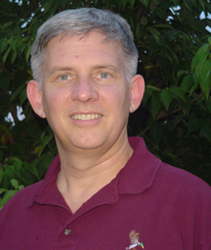
The Paulian approach to critical thinking is applied to a complex engineering case study, the Loss of the Space Shuttle Columbia, exemplifying the model's use for extracting and portaging lessons learned. Participants will engage with documentation from the Columbia Accident Report demonstrating how the model might be employed with undergraduate students in any high technology or team enterprise to understand team behavior and dynamics. The goal is generalizable case study lessons that students might portage into other professional experiences.
{"id":3191,"title":"Case Studies in Engineering Reasoning","author":"Dr. Robert Niewoehner, US Naval Academy","content":"<div><img style=\"margin-top: 10px; width: 140px; float: left; height: 166px; margin-right: 10px;\" src=\"https://www.criticalthinking.org/image/pimage/Rob-Niewoehner_web.jpg\" alt=\"Rob Niewoehner\" /><br /> The Paulian approach to critical thinking is applied to a complex engineering case study, the Loss of the Space Shuttle Columbia, exemplifying the model's use for extracting and portaging lessons learned. Participants will engage with documentation from the Columbia Accident Report demonstrating how the model might be employed with undergraduate students in any high technology or team enterprise to understand team behavior and dynamics. The goal is generalizable case study lessons that students might portage into other professional experiences.</div>\r\n<p><br /> <br /> <br style=\"clear: both;\" /></p>","public_access":"1","public_downloads":"1","sku":"","files":{},"images":{}}
Freezing Relations: Utilizing the Cold War to Generate Student Questions
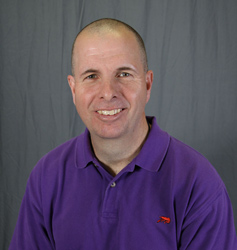 There exists copious amounts of literature disseminated from the Foundation for Critical Thinking that promotes the following point of view: A non-questioning mind is an intellectually dead [emphasis added] mind. By the way, have you ever taught or matriculated a course in which your mind drifted into the realm of irrelevance? Now, think of a specific class that exemplifies the aforementioned course and ask yourself: Was the class characterized by incessant lecturing (i.e., didactic instruction) or was it made alive by the questions emanating from the instructor and classmates? With the intent of promoting the Socratic spirit, this presentation will utilize the threat of nuclear war evinced during the Cold War era to generate spontaneous and issue-specific questions amongst the participants. Moreover, participants will gain insight into how to develop a pedagogy that utilizes disparate methods (e.g., video, music, role play, document reading) designed to generate a classroom that comes alive with questions. For example, how does the film Rock IV aid a student in gaining an understanding of the Doomsday Clock and how that particular concept is relevant today? Just keep that question in mind as you prepare to enter the frigid era of the conflict between two superpowers.
There exists copious amounts of literature disseminated from the Foundation for Critical Thinking that promotes the following point of view: A non-questioning mind is an intellectually dead [emphasis added] mind. By the way, have you ever taught or matriculated a course in which your mind drifted into the realm of irrelevance? Now, think of a specific class that exemplifies the aforementioned course and ask yourself: Was the class characterized by incessant lecturing (i.e., didactic instruction) or was it made alive by the questions emanating from the instructor and classmates? With the intent of promoting the Socratic spirit, this presentation will utilize the threat of nuclear war evinced during the Cold War era to generate spontaneous and issue-specific questions amongst the participants. Moreover, participants will gain insight into how to develop a pedagogy that utilizes disparate methods (e.g., video, music, role play, document reading) designed to generate a classroom that comes alive with questions. For example, how does the film Rock IV aid a student in gaining an understanding of the Doomsday Clock and how that particular concept is relevant today? Just keep that question in mind as you prepare to enter the frigid era of the conflict between two superpowers.
{"id":3192,"title":"Freezing Relations: Utilizing the Cold War to Generate Student Questions","author":"Phillip Crenshaw Ph.D., EAST CENTRAL COMMUNITY COLLEGE","content":"<p><br /> <img style=\"margin-top: 5px; width: 140px; float: left; height: 148px; margin-right: 10px;\" src=\"https://www.criticalthinking.org/image/pimage/Phillip-Crenshaw_web.jpg\" alt=\"Phillip Crenshaw Ph.D\" />There exists copious amounts of literature disseminated from the Foundation for Critical Thinking that promotes the following point of view:&nbsp;A non-questioning mind is an intellectually <em>dead</em> [emphasis added] mind.&nbsp;By the way, have you ever taught or matriculated a course in which your mind drifted into the realm of irrelevance?&nbsp;Now, think of a specific class that exemplifies the aforementioned course and ask yourself:&nbsp;Was the class characterized by incessant lecturing (i.e., didactic instruction) or was it made alive by the questions emanating from the instructor and classmates?&nbsp;With the intent of promoting the Socratic spirit, this presentation will utilize the threat of nuclear war evinced during the Cold War era to generate spontaneous and issue-specific questions amongst the participants.&nbsp;Moreover, participants will gain insight into how to develop a pedagogy that utilizes disparate methods (e.g., video, music, role play, document reading) designed to generate a classroom that comes alive with questions. &nbsp;For example, how does the film <em>Rock IV</em> aid a student in gaining an understanding of the Doomsday Clock and how that particular concept is relevant today?&nbsp;Just keep that question in mind as you prepare to enter the frigid era of the conflict between two superpowers.&nbsp;</p>\r\n<p><br style=\"clear: both;\" /></p>","public_access":"1","public_downloads":"1","sku":"","files":{},"images":{}}
Structuring A Sociology Course And Assignments Around Essential Questions
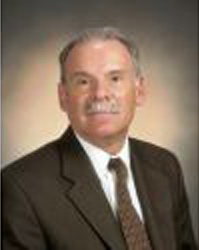 Questions can be the underlying structure for an introductory course in a social science such as sociology. Creation of knowledge within the social sciences is based on the questions posed by the research method model. By using the elements of reasoning and the intellectual standards, an instructor is able to prepare meaningful lectures and assignments. Questions guide students to a deeper involvement with the logic of the discipline. Some examples of such assignments will be presented in such a way as to allow concurrent session participants to initiate their own course assignments using this approach.
Questions can be the underlying structure for an introductory course in a social science such as sociology. Creation of knowledge within the social sciences is based on the questions posed by the research method model. By using the elements of reasoning and the intellectual standards, an instructor is able to prepare meaningful lectures and assignments. Questions guide students to a deeper involvement with the logic of the discipline. Some examples of such assignments will be presented in such a way as to allow concurrent session participants to initiate their own course assignments using this approach.
{"id":3193,"title":"Structuring A Sociology Course And Assignments Around Essential Questions","author":"Dr. Melvin Manson","content":"<p><br /> <img style=\"width: 140px; float: left; height: 176px; margin-right: 10px;\" src=\"https://www.criticalthinking.org/image/pimage/MANSON_web.jpg\" alt=\"Dr. Melvin Manson\" />Questions can be the underlying structure for an introductory course in a social science such as sociology.&nbsp;Creation of knowledge within the social sciences is based on the questions posed by the research method model. By using the elements of reasoning and the intellectual standards, an instructor is able to prepare meaningful lectures and assignments.&nbsp;Questions guide students to a deeper involvement with the logic of the discipline.&nbsp;Some examples of such assignments will be presented in such a way as to allow concurrent session participants to initiate their own course assignments using this approach.</p>\r\n<p><br /><br /> <br style=\"clear: both;\" /></p>","public_access":"1","public_downloads":"1","sku":"","files":{},"images":{}}
Under-prepared College Freshmen: How to Help Them Develop Questioning Minds
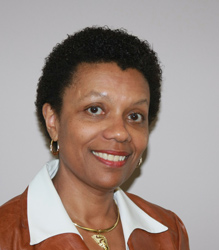 On the Educational Testing Services (ETS) website video, Positioning Educational Assessment for the 21st Century, Distinguished Presidential Appointee Irwin Kirsh states that 50 percent of high school graduates lack the reading and mathematics skills needed for college entry. Yet, many of these students attend community colleges or four-year colleges and universities, and struggle to adapt academically. How do we engage their minds to bridge the content knowledge gap between where they are upon entry, and what they ought to know to succeed in college-level courses? Developing questioning minds in these under-prepared college freshmen as they transition from high school to college is the focus of this session. Using the critical thinking elements, standards, and traits as a basis, participants will explore practical ways to guide the development of freshman-level basic skills for under-prepared college freshmen.
On the Educational Testing Services (ETS) website video, Positioning Educational Assessment for the 21st Century, Distinguished Presidential Appointee Irwin Kirsh states that 50 percent of high school graduates lack the reading and mathematics skills needed for college entry. Yet, many of these students attend community colleges or four-year colleges and universities, and struggle to adapt academically. How do we engage their minds to bridge the content knowledge gap between where they are upon entry, and what they ought to know to succeed in college-level courses? Developing questioning minds in these under-prepared college freshmen as they transition from high school to college is the focus of this session. Using the critical thinking elements, standards, and traits as a basis, participants will explore practical ways to guide the development of freshman-level basic skills for under-prepared college freshmen.
{"id":3194,"title":"Under-prepared College Freshmen: How to Help Them Develop Questioning Minds","author":"Vicki Vernon Lott, Ph.D.","content":"<p><br /> <img style=\"width: 160px; float: right; height: 183px; margin-left: 10px;\" src=\"https://www.criticalthinking.org/image/pimage/Vernon-Lott_web.jpg\" alt=\"Vicki Vernon Lott, Ph.D.\" />On the Educational Testing Services (ETS) website video, <em>Positioning Educational Assessment for the 21<sup>st</sup> Century, </em>Distinguished Presidential Appointee Irwin Kirsh states that 50 percent of high school graduates lack the reading and mathematics skills needed for college entry.&nbsp;Yet, many of these students attend community colleges or four-year colleges and universities, and struggle to adapt academically.&nbsp;How do we engage their minds to bridge the content knowledge gap between where they are upon entry, and what they ought to know to succeed in college-level courses?&nbsp;&nbsp;Developing questioning minds in these under-prepared college freshmen as they transition from high school to college is the focus of this session. &nbsp;Using the critical thinking elements, standards, and traits as a basis, participants will explore practical ways to guide the development of freshman-level basic skills for under-prepared college freshmen.</p>\r\n<p><br style=\"clear: both;\" /></p>","public_access":"1","public_downloads":"1","sku":"","files":{},"images":{}}
Developing Critical Thinking About Literature
 This is a session designed to help teachers at both the grade school and college levels implement and facilitate critical thinking about literature in the classroom. We will discuss each of the elements of thought (point of view, purpose, question at issue, information, interpretation/inference, concepts, assumptions, and implications/consequences) as they specifically relate to literature. First, after discussing each of the eight elements by themselves, I will give a concrete example using a specific poem or other short (one to two pages) piece of literature. Then, we will work together as an entire group relating each of the eight elements to a different short piece of literature. We will then break up into small groups. Each small group will work together relating each of the eight elements to a third short piece of literature. Then, each small group will share their work with all of us. We will repeat this small group sequence, substituting a different short piece of literature each time, until almost the end of the session. We will reserve time for questions, general thoughts, and discussion of the overall experience.
This is a session designed to help teachers at both the grade school and college levels implement and facilitate critical thinking about literature in the classroom. We will discuss each of the elements of thought (point of view, purpose, question at issue, information, interpretation/inference, concepts, assumptions, and implications/consequences) as they specifically relate to literature. First, after discussing each of the eight elements by themselves, I will give a concrete example using a specific poem or other short (one to two pages) piece of literature. Then, we will work together as an entire group relating each of the eight elements to a different short piece of literature. We will then break up into small groups. Each small group will work together relating each of the eight elements to a third short piece of literature. Then, each small group will share their work with all of us. We will repeat this small group sequence, substituting a different short piece of literature each time, until almost the end of the session. We will reserve time for questions, general thoughts, and discussion of the overall experience.
{"id":3195,"title":"Developing Critical Thinking About Literature ","author":"William Nesbitt, Ph.D., Beacon College","content":"<p><br /> <img style=\"margin-top: 5px; width: 160px; float: right; height: 190px; margin-left: 10px;\" src=\"https://www.criticalthinking.org/image/pimage/William-Nesbit_web.jpg\" alt=\"William Nesbitt, Ph.D., Beacon College\" />This is a session designed to help teachers at both the grade school and college levels implement and facilitate critical thinking about literature in the classroom.&nbsp; We will discuss each of the elements of thought (point of view, purpose, question at issue, information, interpretation/inference, concepts, assumptions, and implications/consequences) as they specifically relate to literature.&nbsp; First, after discussing each of the eight elements by themselves, I will give a concrete example using a specific poem or other short (one to two pages) piece of literature.&nbsp; Then, we will work together as an entire group relating each of the eight elements to a different short piece of literature.&nbsp; We will then break up into small groups.&nbsp; Each small group will work together relating each of the eight elements to a third short piece of literature. Then, each small group will share their work with all of us.&nbsp; We will repeat this small group sequence, substituting a different short piece of literature each time, until almost the end of the session.&nbsp; We will reserve time for questions, general thoughts, and discussion of the overall experience.</p>\r\n<p><br style=\"clear: both;\" /></p>","public_access":"1","public_downloads":"1","sku":"","files":{},"images":{}}
Mastering the Cognitive Skills Involved in Patient Care
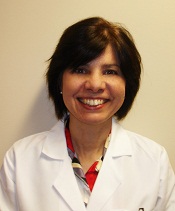 The cognitive skills needed for patient care include the ability to utilize an existing knowledge base, critical thinking and independent learning skills. In the fields of medicine, nursing and optometry the acquisition of these skills is a required outcome of the educational process. In the health care professions, the focus on the need to teach cognitive reasoning skills is relatively new. In the past, students were expected to “naturally” acquire these skills while immersed in clinical training. However, in today’s health care environment, the complexity of health care delivery and the emphasis on productivity, demands a student clinician, who has a solid understanding of cognitive reasoning skills before starting clinical training. The New England College of Optometry developed and implemented the Clinical Reasoning Course (CRC) sequence, to facilitate and augment the teaching of cognitive skills. Innovative teaching pedagogy was used to create an active learning environment. This environment stimulated students to learn by questioning, peer teaching and self directed study. This session will describe the pedagogy and facilitate a discussion of common challenges and practical solutions.
The cognitive skills needed for patient care include the ability to utilize an existing knowledge base, critical thinking and independent learning skills. In the fields of medicine, nursing and optometry the acquisition of these skills is a required outcome of the educational process. In the health care professions, the focus on the need to teach cognitive reasoning skills is relatively new. In the past, students were expected to “naturally” acquire these skills while immersed in clinical training. However, in today’s health care environment, the complexity of health care delivery and the emphasis on productivity, demands a student clinician, who has a solid understanding of cognitive reasoning skills before starting clinical training. The New England College of Optometry developed and implemented the Clinical Reasoning Course (CRC) sequence, to facilitate and augment the teaching of cognitive skills. Innovative teaching pedagogy was used to create an active learning environment. This environment stimulated students to learn by questioning, peer teaching and self directed study. This session will describe the pedagogy and facilitate a discussion of common challenges and practical solutions.
{"id":3196,"title":"Mastering the Cognitive Skills Involved in Patient Care","author":"Aurora Denial OD New England College of Optometry","content":"<p><br /> <img style=\"width: 160px; float: right; height: 193px; margin-left: 10px;\" src=\"https://www.criticalthinking.org/image/pimage/denial-aurora.jpg\" alt=\"Aurora Denial\" />The cognitive skills needed for patient care include the ability to utilize an existing knowledge base, critical thinking and independent learning skills. In the fields of medicine, nursing and optometry the acquisition of these skills is a required outcome of the educational process. &nbsp;In the health care professions, the focus on the need to teach cognitive reasoning skills is relatively new. In the past, students were expected to &ldquo;naturally&rdquo; acquire these skills while immersed in clinical training.&nbsp; However, in today&rsquo;s health care environment, the complexity of health care delivery and the emphasis on productivity, demands a student clinician, who has a solid understanding of cognitive reasoning skills before starting clinical training. The New England College of Optometry developed and implemented the Clinical Reasoning Course (CRC) sequence, to facilitate and augment the teaching of cognitive skills. Innovative teaching pedagogy was used to create an active learning environment. This environment stimulated students to learn by questioning, peer teaching and self directed study. This session will describe the pedagogy and facilitate a discussion of common challenges and practical solutions.<br /> <br /> <br style=\"clear: both;\" /></p>","public_access":"1","public_downloads":"1","sku":"","files":{},"images":{}}
Using Questions to Guide the Revision Process: peer review and self-reflection strategies.
 Revision is essential if we want our students to become competent, self-reflective writers. While it is essential for students to be taught the basic rhetorical modes and strategies, it is more important for them to identify when they are using those strategies effectively and purposefully.
Revision is essential if we want our students to become competent, self-reflective writers. While it is essential for students to be taught the basic rhetorical modes and strategies, it is more important for them to identify when they are using those strategies effectively and purposefully.
Question-based peer review, if done well, can be tremendously effective towards this end. This session will look at several questioning and revision techniques that allow students to interrogate their work through student-teacher conferences, peer revision teams, self-reflection, and self-evaluation.
{"id":3197,"title":"Using Questions to Guide the Revision Process: peer review and self-reflection strategies.","author":"Jessica King English Instructor Von Steuben Science High School Chicago, IL","content":"<p><br /> <img style=\"width: 150px; float: left; height: 144px; margin-right: 10px;\" src=\"https://www.criticalthinking.org/image/pimage/Jessica King.jpg\" alt=\"Jessica King\" />Revision is essential if we want our students to become competent, self-reflective writers.&nbsp;&nbsp; While it is essential for students to be taught the basic rhetorical modes and strategies, it is more important for them to identify when they are using those strategies effectively and purposefully.&nbsp;<br /> Question-based peer review, if done well, can be tremendously effective towards this end.&nbsp; This session will look at several questioning and revision techniques that allow&nbsp;students to interrogate their&nbsp;work through student-teacher conferences, peer revision teams, self-reflection, and self-evaluation.<br /> <br /> <br style=\"clear: both;\" /></p>","public_access":"1","public_downloads":"1","sku":"","files":{},"images":{}}
The Logic Wheel: Strategies for the Classroom
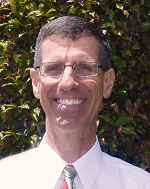 Action research has shown the power of the Elements of Thought to give learners agency over their own thinking. This session will focus on using the logic wheel to help students uncover and illuminate how they are reasoning. We will walk through the process of teaching the wheel, explore examples from diverse subject areas, then construct wheels relating to our own disciplines. Participants will gain a deeper understanding of the Elements of Thought, successful strategies for teaching the wheel, along with materials that can be used immediately in the classroom, including a PowerPoint. The session is applicable to all levels of instruction and the strategies presented can be adapted to any discipline.
Action research has shown the power of the Elements of Thought to give learners agency over their own thinking. This session will focus on using the logic wheel to help students uncover and illuminate how they are reasoning. We will walk through the process of teaching the wheel, explore examples from diverse subject areas, then construct wheels relating to our own disciplines. Participants will gain a deeper understanding of the Elements of Thought, successful strategies for teaching the wheel, along with materials that can be used immediately in the classroom, including a PowerPoint. The session is applicable to all levels of instruction and the strategies presented can be adapted to any discipline.
{"id":3198,"title":"The Logic Wheel: Strategies for the Classroom ","author":"Gary Meegan","content":"<p><br /><img style=\"width: 150px; float: left; height: 189px; margin-right: 10px;\" src=\"https://www.criticalthinking.org/image/pimage/Gary Meegan.jpg\" alt=\"Gary Meegan\" />Action research has shown the power of the Elements of Thought to give learners agency over their own thinking. This session will focus on using the logic wheel to help students uncover and illuminate how they are reasoning. We will walk through the process of teaching the wheel, explore examples from diverse subject areas, then construct wheels relating to our own disciplines. Participants will gain a deeper understanding of the Elements of Thought, successful strategies for teaching the wheel, along with materials that can be used immediately in the classroom, including a PowerPoint. The session is applicable to all levels of instruction and the strategies presented can be adapted to any discipline.<br /><br /> <br style=\"clear: both;\" /></p>","public_access":"1","public_downloads":"1","sku":"","files":{},"images":{}}
A Practical Framework for Developing Questioning Skills
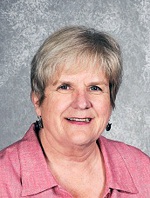 The ability to generate meaningful questions is a gateway to lifelong learning. Questions can reveal so much about what our students have learned. However, we have to be careful not to assume that our students already know how to generate focused, deep and significant questions. This session looks at ways we can explicitly coach our students to those skills needed to ask substantive questions. Beginning with the Foundation’s framework of three types of questions, we will practice designing assignments and assessments that include student-generated questions. We will then touch on the concept of “stupid questions,” and explore how students can make their questions stronger by including context, elaboration, and purpose. This session is appropriate for all levels of inquiry and any discipline.
The ability to generate meaningful questions is a gateway to lifelong learning. Questions can reveal so much about what our students have learned. However, we have to be careful not to assume that our students already know how to generate focused, deep and significant questions. This session looks at ways we can explicitly coach our students to those skills needed to ask substantive questions. Beginning with the Foundation’s framework of three types of questions, we will practice designing assignments and assessments that include student-generated questions. We will then touch on the concept of “stupid questions,” and explore how students can make their questions stronger by including context, elaboration, and purpose. This session is appropriate for all levels of inquiry and any discipline.
{"id":3200,"title":"A Practical Framework for Developing Questioning Skills","author":"Laura Ramey ","content":"<p><br /> <img style=\"width: 150px; float: left; height: 198px; margin-right: 10px;\" src=\"https://www.criticalthinking.org/image/pimage/Laura Ramey.jpg\" alt=\"Laura Ramey\" />The ability to generate meaningful questions is a gateway to lifelong learning. Questions can reveal so much about what our students have learned. However, we have to be careful not to assume that our students already know how to generate focused, deep and significant questions. This session looks at ways we can explicitly coach our students to those skills needed to ask substantive questions. Beginning with the Foundation&rsquo;s framework of three types of questions, we will practice designing assignments and assessments that include student-generated questions. We will then touch on the concept of &ldquo;stupid questions,&rdquo; and explore how students can make their questions stronger by including context, elaboration, and purpose. This session is appropriate for all levels of inquiry and any discipline.<br /> <br /> <br style=\"clear: both;\" /></p>","public_access":"1","public_downloads":"1","sku":"","files":{},"images":{}}
Concurrent Issues Strands: Critical Thinking and Ethical and Social Issues
These sessions will be facilitated by Rush Cosgrove and Bob Schlim
Critical thinking is not just for the classroom. It is crucial to the conduct of life itself. To stimulate, even to provoke, some of that thinking, we have included in this year’s conference two sessions that emphasize the importance of thinking critically about ethical, social and political issues. In each case, the issue is presented in such a way as to stimulate the critical thinking of the participants. In presenting the issue we strove to be “objective.” However, we have no pretence to being “neutral.”
These sessions will focus on the views of the participants and will be led by a facilitator. Debate is invited as long as it demonstrates fairminded and empathic critical thinking. Participants will be divided into small groups. Each group will briefly report its conclusions to the group as a whole toward the end of the session. Caveat: though participants are free to question or argue against any of the premises or assumptions in the formulation of the issue, such discussion should not be so drawn out as to prevent discussion of the issue itself, as presented. We hasten to add---to those who believe that “neutrality” is essential in such discussions ---that any issue put in such a way as to challenge the dominant view in a society will appear to those who hold that dominant view to be biased and unfair. We therefore recognize that others might put the issues differently, to stimulate our thinking in other, that is in different, directions.
Critical Thinking, Terrorism, and the Danger of a Police State
Democracy presupposes transparency in government. If the government can routinely engage in covert action hidden from public scrutiny, then the people lose the capacity to judge those covert acts. Increasingly, it appears that the government is engaging in a variety of forms of covert action traditionally associated with those of a police state: arresting and jailing people without charging them, suspending the civil and human rights of persons suspected of involvement in or sympathy with “terrorists,” setting up prisons outside the country to prevent the laws of the country from applying to the individuals so incarcerated, sanctioning the use of coercion in interrogation, sending people so arrested to be interrogated by countries which routinely use torture in the process of interrogation. The argument has been made that the above actions are necessitated by the threat of terrorism and that the government can be trusted to use them only in a temporary and just way. Using your best critical thinking consider the arguments for and against a “democratic” government engaging in covert action such as the above. If you conclude that covert action such as the above are unjustified, how would you propose that the government protect its citizens against terrorists?
Critical Thinking, Sustainability and Some Important Implications of Capitalism
There is increasing concern across the globe about the long-term implications of human action on the planet. Can we continue to live as we have and sustain the health of the earth? Some would say it is already too late – that whatever we might do to stop global warming, for instance, cannot reverse the warming trend we are now experiencing. Others say it is still possible to make a difference and to at least slow the rate of warming due to human activity (and thereby avert some negative potential consequences). One of the most powerful forces affecting the planet is transnational capitalism, which brings capitalism and its implications into the homes of virtually everyone in the world. Using your best critical thinking, consider whether and to what extent capitalism as it is not being practiced affects our ability to sustain the health of the planet in the long run. Consider how capitalist philosophy and practice affects the health of people and other species. To the extent that you believe capitalism leads to problems for the health of humans, other species and the earth, discuss how these problems can be dealt with, from a critical thinking perspective.
Is it Possible to Cultivate Critical Societies?
It is becoming increasingly clear that the survival and well-being of humans largely depends on our ability to work together successfully and productively, to reach out to one another, to help one another. Yet, problems of nationalism and ethnocentrism are pervasive across the world. People are raised to see their country, or their group, as better than other countries or groups. They tend to favor the groups to which they belong. This is a natural tendency of the human mind. And it is a tendency fostered within most, if not all, cultures across the world.
If we are to create a world that advances justice for the vast majority of people across the globe, we must become citizens of the world. But can we denounce nationalism and ethnocentrism? Can we think within a global, rather than national, view? Are we capable of thinking through the long-term implications of our thought and actions? Can we begin to relegate the interests of any given country, including our own, to that of one of many: no more worthy, no more needy, no more deserving of the world’s resources than anyone else on the planet? Can we begin to see the lives of people in other countries as no less precious than the lives of people in our own country? Can we oppose the pursuit of narrow selfish or group interests? Can integrity and justice become more important to us than national advantage and power? These questions will lie at the heart of this session in which participants will discuss and debate answers to them in the spirit of critical thinking.
{"id":3208,"title":"Concurrent Issues Strands: Critical Thinking and Ethical and Social Issues","author":"","content":"<p><em id=\"__mce\">These sessions will be facilitated by Rush Cosgrove and Bob Schlim</em><br /> <br /> Critical thinking is not just for the classroom.&nbsp; It is crucial to the conduct of life itself.&nbsp; To stimulate, even to provoke, some of that thinking, we have included in this year&rsquo;s conference two sessions that emphasize the importance of thinking critically about ethical, social and political issues. In each case, the issue is presented in such a way as to stimulate the critical thinking of the participants.&nbsp; In presenting the issue we strove to be &ldquo;objective.&rdquo;&nbsp; However, we have no pretence to being &ldquo;neutral.&rdquo;<br /> <br /> These sessions will focus on the views of the participants and will be led by a facilitator.&nbsp; Debate is invited as long as it demonstrates fairminded and empathic critical thinking.&nbsp; Participants will be divided into small groups. Each group will briefly report its conclusions to the group as a whole toward the end of the session.&nbsp; Caveat: though participants are free to question or argue against any of the premises or assumptions in the formulation of the issue, such discussion should not be so drawn out as to prevent discussion of the issue itself, as presented.&nbsp; We hasten to add---to those who believe that &ldquo;neutrality&rdquo; is essential in such discussions ---that any issue put in such a way as to challenge the dominant view in a society will appear to those who hold that dominant view to be biased and unfair.&nbsp; We therefore recognize that others might put the issues differently, to stimulate our thinking in other, that is in different, directions.&nbsp;</p>\r\n&nbsp;\r\n<p style=\"margin-left: 40px;\"><strong>Critical Thinking, Terrorism, and the Danger of a Police State</strong><br /> Democracy presupposes transparency in government.&nbsp; If the government can routinely engage in covert action hidden from public scrutiny, then the people lose the capacity to judge those covert acts. Increasingly, it appears that the government is engaging in a variety of forms of covert action traditionally associated with those of a police state: arresting and jailing people without charging them, suspending the civil and human rights of persons suspected of involvement in or sympathy with &ldquo;terrorists,&rdquo; setting up prisons outside the country to prevent the laws of the country from applying to the individuals so incarcerated, sanctioning the use of coercion in interrogation, sending people so arrested to be interrogated by countries which routinely use torture in the process of interrogation.&nbsp; The argument has been made that the above actions are necessitated by the threat of terrorism and that the government can be trusted to use them only in a temporary and just way.&nbsp; Using your best critical thinking consider the arguments for and against a &ldquo;democratic&rdquo; government engaging in covert action such as the above.&nbsp; If you conclude that covert action such as the above are unjustified, how would you propose that the government protect its citizens against terrorists?<br /> &nbsp;<br /> <strong>Critical Thinking, Sustainability and Some Important Implications of Capitalism</strong><br /> There is increasing concern across the globe about the long-term implications of human action on the planet.&nbsp; Can we continue to live as we have and sustain the health of the earth?&nbsp; Some would say it is already too late &ndash; that whatever we might do to stop global warming, for instance, cannot reverse the warming trend we are now experiencing.&nbsp; Others say it is still possible to make a difference and to at least slow the rate of warming due to human activity (and thereby avert some negative potential consequences).&nbsp; One of the most powerful forces affecting the planet is transnational capitalism, which brings capitalism and its implications into the homes of virtually everyone in the world.&nbsp; Using your best critical thinking, consider whether and to what extent capitalism as it is not being practiced affects our ability to sustain the health of the planet in the long run.&nbsp; Consider how capitalist philosophy and practice affects the health of people and other species.&nbsp; To the extent that you believe capitalism leads to problems for the health of humans, other species and the earth, discuss how these problems can be dealt with, from a critical thinking perspective.<br /> <br /> <strong>Is it Possible to Cultivate Critical Societies?</strong><br /> It is becoming increasingly clear that the survival and well-being of humans largely depends on our ability to work together successfully and productively, to reach out to one another, to help one another. Yet, problems of nationalism and ethnocentrism are pervasive across the world. People are raised to see their country, or their group, as better than other countries or groups. They tend to favor the groups to which they belong. This is a natural tendency of the human mind. And it is a tendency fostered within most, if not all, cultures across the world.<br /> <br /> If we are to create a world that advances justice for the vast majority of people across the globe, we must become citizens of the world. But can we denounce nationalism and ethnocentrism? Can we think within a global, rather than national, view?&nbsp; Are we capable of thinking through the long-term implications of our thought and actions?&nbsp; &nbsp;Can we begin to relegate the interests of any given country, including our own, to that of one of many: no more worthy, no more needy, no more deserving of the world&rsquo;s resources than anyone else on the planet? Can we begin to see the lives of people in other countries as no less precious than the lives of people in our own country? Can we oppose the pursuit of narrow selfish or group interests? Can integrity and justice become more important to us than national advantage and power?&nbsp; These questions will lie at the heart of this session in which participants will discuss and debate answers to them in the spirit of critical thinking.</p>\r\n<p><br style=\"clear: both;\" /></p>","public_access":"1","public_downloads":"1","sku":"","files":{},"images":{}}





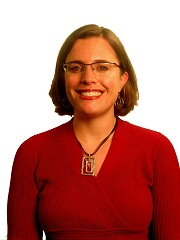
 The Paul-Elder critical thinking framework provides academic advisors with tools for understanding how students make meaning of their academic experiences. Socratic questioning provides a vehicle for advisors to engage students in a reflective dialogue that probes student perceptions and uncovers factors that may help or inhibit student success. Professional academic advisors at the University of Louisville are involved in a pilot project that incorporates the concepts of the Paul-Elder framework, Socratic questioning, intrusive advising, basic counseling techniques, and the NACADA teaching/learning paradigm of academic advising into an innovative approach to advising students in academic peril. The purpose of this session is to share how the University of Louisville academic advisors are planning an intervention program to foster student engagement and success through the art of Socratic questioning.
The Paul-Elder critical thinking framework provides academic advisors with tools for understanding how students make meaning of their academic experiences. Socratic questioning provides a vehicle for advisors to engage students in a reflective dialogue that probes student perceptions and uncovers factors that may help or inhibit student success. Professional academic advisors at the University of Louisville are involved in a pilot project that incorporates the concepts of the Paul-Elder framework, Socratic questioning, intrusive advising, basic counseling techniques, and the NACADA teaching/learning paradigm of academic advising into an innovative approach to advising students in academic peril. The purpose of this session is to share how the University of Louisville academic advisors are planning an intervention program to foster student engagement and success through the art of Socratic questioning.

 There exists copious amounts of literature disseminated from the Foundation for Critical Thinking that promotes the following point of view: A non-questioning mind is an intellectually dead [emphasis added] mind. By the way, have you ever taught or matriculated a course in which your mind drifted into the realm of irrelevance? Now, think of a specific class that exemplifies the aforementioned course and ask yourself: Was the class characterized by incessant lecturing (i.e., didactic instruction) or was it made alive by the questions emanating from the instructor and classmates? With the intent of promoting the Socratic spirit, this presentation will utilize the threat of nuclear war evinced during the Cold War era to generate spontaneous and issue-specific questions amongst the participants. Moreover, participants will gain insight into how to develop a pedagogy that utilizes disparate methods (e.g., video, music, role play, document reading) designed to generate a classroom that comes alive with questions. For example, how does the film Rock IV aid a student in gaining an understanding of the Doomsday Clock and how that particular concept is relevant today? Just keep that question in mind as you prepare to enter the frigid era of the conflict between two superpowers.
There exists copious amounts of literature disseminated from the Foundation for Critical Thinking that promotes the following point of view: A non-questioning mind is an intellectually dead [emphasis added] mind. By the way, have you ever taught or matriculated a course in which your mind drifted into the realm of irrelevance? Now, think of a specific class that exemplifies the aforementioned course and ask yourself: Was the class characterized by incessant lecturing (i.e., didactic instruction) or was it made alive by the questions emanating from the instructor and classmates? With the intent of promoting the Socratic spirit, this presentation will utilize the threat of nuclear war evinced during the Cold War era to generate spontaneous and issue-specific questions amongst the participants. Moreover, participants will gain insight into how to develop a pedagogy that utilizes disparate methods (e.g., video, music, role play, document reading) designed to generate a classroom that comes alive with questions. For example, how does the film Rock IV aid a student in gaining an understanding of the Doomsday Clock and how that particular concept is relevant today? Just keep that question in mind as you prepare to enter the frigid era of the conflict between two superpowers.  Questions can be the underlying structure for an introductory course in a social science such as sociology. Creation of knowledge within the social sciences is based on the questions posed by the research method model. By using the elements of reasoning and the intellectual standards, an instructor is able to prepare meaningful lectures and assignments. Questions guide students to a deeper involvement with the logic of the discipline. Some examples of such assignments will be presented in such a way as to allow concurrent session participants to initiate their own course assignments using this approach.
Questions can be the underlying structure for an introductory course in a social science such as sociology. Creation of knowledge within the social sciences is based on the questions posed by the research method model. By using the elements of reasoning and the intellectual standards, an instructor is able to prepare meaningful lectures and assignments. Questions guide students to a deeper involvement with the logic of the discipline. Some examples of such assignments will be presented in such a way as to allow concurrent session participants to initiate their own course assignments using this approach. On the Educational Testing Services (ETS) website video, Positioning Educational Assessment for the 21st Century, Distinguished Presidential Appointee Irwin Kirsh states that 50 percent of high school graduates lack the reading and mathematics skills needed for college entry. Yet, many of these students attend community colleges or four-year colleges and universities, and struggle to adapt academically. How do we engage their minds to bridge the content knowledge gap between where they are upon entry, and what they ought to know to succeed in college-level courses? Developing questioning minds in these under-prepared college freshmen as they transition from high school to college is the focus of this session. Using the critical thinking elements, standards, and traits as a basis, participants will explore practical ways to guide the development of freshman-level basic skills for under-prepared college freshmen.
On the Educational Testing Services (ETS) website video, Positioning Educational Assessment for the 21st Century, Distinguished Presidential Appointee Irwin Kirsh states that 50 percent of high school graduates lack the reading and mathematics skills needed for college entry. Yet, many of these students attend community colleges or four-year colleges and universities, and struggle to adapt academically. How do we engage their minds to bridge the content knowledge gap between where they are upon entry, and what they ought to know to succeed in college-level courses? Developing questioning minds in these under-prepared college freshmen as they transition from high school to college is the focus of this session. Using the critical thinking elements, standards, and traits as a basis, participants will explore practical ways to guide the development of freshman-level basic skills for under-prepared college freshmen. This is a session designed to help teachers at both the grade school and college levels implement and facilitate critical thinking about literature in the classroom. We will discuss each of the elements of thought (point of view, purpose, question at issue, information, interpretation/inference, concepts, assumptions, and implications/consequences) as they specifically relate to literature. First, after discussing each of the eight elements by themselves, I will give a concrete example using a specific poem or other short (one to two pages) piece of literature. Then, we will work together as an entire group relating each of the eight elements to a different short piece of literature. We will then break up into small groups. Each small group will work together relating each of the eight elements to a third short piece of literature. Then, each small group will share their work with all of us. We will repeat this small group sequence, substituting a different short piece of literature each time, until almost the end of the session. We will reserve time for questions, general thoughts, and discussion of the overall experience.
This is a session designed to help teachers at both the grade school and college levels implement and facilitate critical thinking about literature in the classroom. We will discuss each of the elements of thought (point of view, purpose, question at issue, information, interpretation/inference, concepts, assumptions, and implications/consequences) as they specifically relate to literature. First, after discussing each of the eight elements by themselves, I will give a concrete example using a specific poem or other short (one to two pages) piece of literature. Then, we will work together as an entire group relating each of the eight elements to a different short piece of literature. We will then break up into small groups. Each small group will work together relating each of the eight elements to a third short piece of literature. Then, each small group will share their work with all of us. We will repeat this small group sequence, substituting a different short piece of literature each time, until almost the end of the session. We will reserve time for questions, general thoughts, and discussion of the overall experience. The cognitive skills needed for patient care include the ability to utilize an existing knowledge base, critical thinking and independent learning skills. In the fields of medicine, nursing and optometry the acquisition of these skills is a required outcome of the educational process. In the health care professions, the focus on the need to teach cognitive reasoning skills is relatively new. In the past, students were expected to “naturally” acquire these skills while immersed in clinical training. However, in today’s health care environment, the complexity of health care delivery and the emphasis on productivity, demands a student clinician, who has a solid understanding of cognitive reasoning skills before starting clinical training. The New England College of Optometry developed and implemented the Clinical Reasoning Course (CRC) sequence, to facilitate and augment the teaching of cognitive skills. Innovative teaching pedagogy was used to create an active learning environment. This environment stimulated students to learn by questioning, peer teaching and self directed study. This session will describe the pedagogy and facilitate a discussion of common challenges and practical solutions.
The cognitive skills needed for patient care include the ability to utilize an existing knowledge base, critical thinking and independent learning skills. In the fields of medicine, nursing and optometry the acquisition of these skills is a required outcome of the educational process. In the health care professions, the focus on the need to teach cognitive reasoning skills is relatively new. In the past, students were expected to “naturally” acquire these skills while immersed in clinical training. However, in today’s health care environment, the complexity of health care delivery and the emphasis on productivity, demands a student clinician, who has a solid understanding of cognitive reasoning skills before starting clinical training. The New England College of Optometry developed and implemented the Clinical Reasoning Course (CRC) sequence, to facilitate and augment the teaching of cognitive skills. Innovative teaching pedagogy was used to create an active learning environment. This environment stimulated students to learn by questioning, peer teaching and self directed study. This session will describe the pedagogy and facilitate a discussion of common challenges and practical solutions. Revision is essential if we want our students to become competent, self-reflective writers. While it is essential for students to be taught the basic rhetorical modes and strategies, it is more important for them to identify when they are using those strategies effectively and purposefully.
Revision is essential if we want our students to become competent, self-reflective writers. While it is essential for students to be taught the basic rhetorical modes and strategies, it is more important for them to identify when they are using those strategies effectively and purposefully.  Action research has shown the power of the Elements of Thought to give learners agency over their own thinking. This session will focus on using the logic wheel to help students uncover and illuminate how they are reasoning. We will walk through the process of teaching the wheel, explore examples from diverse subject areas, then construct wheels relating to our own disciplines. Participants will gain a deeper understanding of the Elements of Thought, successful strategies for teaching the wheel, along with materials that can be used immediately in the classroom, including a PowerPoint. The session is applicable to all levels of instruction and the strategies presented can be adapted to any discipline.
Action research has shown the power of the Elements of Thought to give learners agency over their own thinking. This session will focus on using the logic wheel to help students uncover and illuminate how they are reasoning. We will walk through the process of teaching the wheel, explore examples from diverse subject areas, then construct wheels relating to our own disciplines. Participants will gain a deeper understanding of the Elements of Thought, successful strategies for teaching the wheel, along with materials that can be used immediately in the classroom, including a PowerPoint. The session is applicable to all levels of instruction and the strategies presented can be adapted to any discipline. The ability to generate meaningful questions is a gateway to lifelong learning. Questions can reveal so much about what our students have learned. However, we have to be careful not to assume that our students already know how to generate focused, deep and significant questions. This session looks at ways we can explicitly coach our students to those skills needed to ask substantive questions. Beginning with the Foundation’s framework of three types of questions, we will practice designing assignments and assessments that include student-generated questions. We will then touch on the concept of “stupid questions,” and explore how students can make their questions stronger by including context, elaboration, and purpose. This session is appropriate for all levels of inquiry and any discipline.
The ability to generate meaningful questions is a gateway to lifelong learning. Questions can reveal so much about what our students have learned. However, we have to be careful not to assume that our students already know how to generate focused, deep and significant questions. This session looks at ways we can explicitly coach our students to those skills needed to ask substantive questions. Beginning with the Foundation’s framework of three types of questions, we will practice designing assignments and assessments that include student-generated questions. We will then touch on the concept of “stupid questions,” and explore how students can make their questions stronger by including context, elaboration, and purpose. This session is appropriate for all levels of inquiry and any discipline.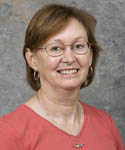 This session describes the use of faculty "coaches" to promote Critical Thinking. We explain (1) how the coaches themselves developed expertise in Critical Thinking, (2)infiltration strategies and other activities used to promote Critical Thinking on campus,(3)systemic roadblocks and other obstacles encountered in the attempt to disseminate the Foundation’s model, (4) the coaches' "reproductive systems," and (5) initiatives they have adopted to continue momentum and institutionalize Critical Thinking at the university. Finally, the session will unveil the newly developed three-level Critical Thinking certification system, designed to bring Critical Thinking to a dramatically higher level of attention and seriousness within the university structure by integrating the scholarship and pedagogy of Critical Thinking into Promotion, Tenure, and Merit decisions.
This session describes the use of faculty "coaches" to promote Critical Thinking. We explain (1) how the coaches themselves developed expertise in Critical Thinking, (2)infiltration strategies and other activities used to promote Critical Thinking on campus,(3)systemic roadblocks and other obstacles encountered in the attempt to disseminate the Foundation’s model, (4) the coaches' "reproductive systems," and (5) initiatives they have adopted to continue momentum and institutionalize Critical Thinking at the university. Finally, the session will unveil the newly developed three-level Critical Thinking certification system, designed to bring Critical Thinking to a dramatically higher level of attention and seriousness within the university structure by integrating the scholarship and pedagogy of Critical Thinking into Promotion, Tenure, and Merit decisions.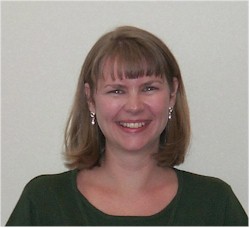 Institutions accredited by the Southern Association of Colleges and Schools (SACS) must create a Quality Enhancement Plan that focuses on improving student learning. Many institutions have chosen critical thinking as the focus of their plans. This session will provide an overview of lessons learned from an experienced QEP Evaluator with specific recommendations for planning and implementing a successful critical thinking QEP. Surry Community College has completed its five-year critical thinking QEP, and the session will include an analysis of the full experience of implementing a critical thinking initiative and will address ways in which critical thinking has been institutionalized as the college moves forward on its next QEP. The session should be useful for any institution planning a critical thinking initiative whether a member of the SACS region or not.
Institutions accredited by the Southern Association of Colleges and Schools (SACS) must create a Quality Enhancement Plan that focuses on improving student learning. Many institutions have chosen critical thinking as the focus of their plans. This session will provide an overview of lessons learned from an experienced QEP Evaluator with specific recommendations for planning and implementing a successful critical thinking QEP. Surry Community College has completed its five-year critical thinking QEP, and the session will include an analysis of the full experience of implementing a critical thinking initiative and will address ways in which critical thinking has been institutionalized as the college moves forward on its next QEP. The session should be useful for any institution planning a critical thinking initiative whether a member of the SACS region or not. 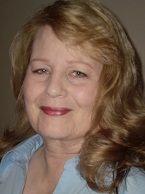 Students participating in Advanced Placement classes at the high school level often have a difficult time with the course work and the AP exams due to a lack of critical thinking skills. These skills are seldom explicitly taught in any significant degree prior to a student entering an AP class, which is even more apparent in classrooms with students from low socio- economic backgrounds. In partnership with an area high school, a Pre-AP program was created at the middle school level with a focus on fostering critical thinking skills and abilities. Questioning is at the heart of developing good critical thinking skills and the Elements of Reason and the Intellectual Standards provide structures to guide questioning on the part of students and teachers. Consistent use of this framework is key to producing students who are better prepared to succeed in advanced classes. This session focuses on how to place the elements and standards at the center of instruction at the middle school level with an emphasis on helping students develop as disciplined questioners.
Students participating in Advanced Placement classes at the high school level often have a difficult time with the course work and the AP exams due to a lack of critical thinking skills. These skills are seldom explicitly taught in any significant degree prior to a student entering an AP class, which is even more apparent in classrooms with students from low socio- economic backgrounds. In partnership with an area high school, a Pre-AP program was created at the middle school level with a focus on fostering critical thinking skills and abilities. Questioning is at the heart of developing good critical thinking skills and the Elements of Reason and the Intellectual Standards provide structures to guide questioning on the part of students and teachers. Consistent use of this framework is key to producing students who are better prepared to succeed in advanced classes. This session focuses on how to place the elements and standards at the center of instruction at the middle school level with an emphasis on helping students develop as disciplined questioners.  This session will focus on how two school districts embedded critical thinking in everything they did, from decision making to state standards to lesson planning to student engagement to assessment. This session will be geared to K-12 school leaders and teachers that are working on making critical thinking a part of reforming school practice and instruction. Examples of the practical application of the framework to the work of schools will be demonstrated. Ideas will be shared that can be embedded immediately into teaching and learning - for the ultimate purpose of school revitalization.
This session will focus on how two school districts embedded critical thinking in everything they did, from decision making to state standards to lesson planning to student engagement to assessment. This session will be geared to K-12 school leaders and teachers that are working on making critical thinking a part of reforming school practice and instruction. Examples of the practical application of the framework to the work of schools will be demonstrated. Ideas will be shared that can be embedded immediately into teaching and learning - for the ultimate purpose of school revitalization.